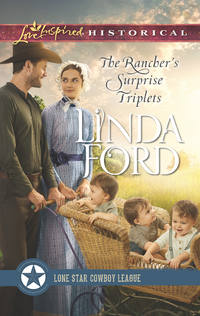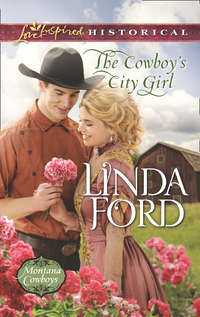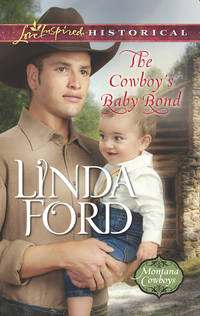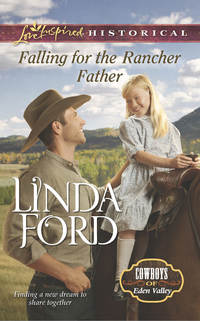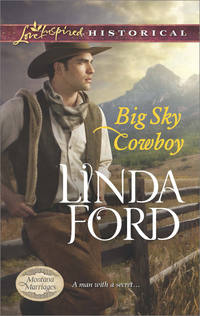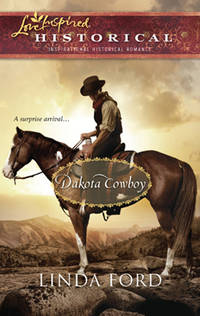
Полная версия
The Road to Love
She gladly pulled her thoughts back to the farm—her home, her security. “I got me a tractor.” She’d managed to limp it through last year with the help of the oldest Oliver boy whose ability and patience coaxed it to run. But since Abby Oliver headed north, she had no one to help her. “It needs a few repairs.” She almost snorted. A few repairs. It was as pathetic as measuring .06 inches of precipitation and calling it rain.
Hatcher pushed to his feet. “I’ll be moving on. Again, thank you for the meal.”
“You’re welcome. Thank you for taking care of the windmill.” The rotary wheel hummed quietly on the tower. No more protesting squeal of dry gears. Another month before she’d have to brave the heights again.
Hatcher stood with his hat in his hand, looking as though he had something more he wanted to say. Then he jammed the blackened hat on his head and nodded. “Good food. Thank you.”
Kate laughed. “Does that mean you won’t post a secret sign at the end of the lane warning hobos away?”
She couldn’t see his eyes, hidden under the shadow of his hat, but his mouth flashed a quick smile.
“No, ma’am. But I won’t be letting others know how good a cook you are, either. Wouldn’t want a whole stream of hungry men descending on you.” He gave a quick nod.
“Now I’ll leave you in peace. God bless.”
She watched him stride away, his long gait eating up the road in deceptive laziness and suddenly, she felt lonely. She thought of calling him back. She wanted to talk more about the farm. Ask him what he’d seen in his travels. How severe was the drought in other places? Did he really see God’s blessing in the hardships he witnessed and experienced? She sighed deeply, pushing her useless longings out as she exhaled. Then she returned to the many chores still waiting.
She strained the milk and separated it.
“Mary, hurry out and shut in the chickens. Take out these peelings.” She handed her the basin and ignored Mary’s wide-eyed silent protest. “We can’t afford to lose any of them.” The child had to get over her unreasonable fear of chickens. “Dougie, go put the heifers into the corrals and make sure the gate’s tightly latched.” He was really too small to chase after the animals but she couldn’t be everywhere at once. “Hurry now before it gets dark.” She’d run out and help Dougie as soon as she finished the milk. And if the past was any indication, she’d end up dumping the basin of peelings. Mary never seemed to get any farther than the fence where she tried to poke the contents through the wire holes.
Kate prayed as she worked. God, protect the children. Help Mary realize she’s bigger than the chickens. Help me find a way to get my crop in. She stilled her thoughts. As usual, her prayers seemed an endless list of requests. But she had nowhere to turn but to God who promised to provide all her needs. Seemed to her a God who owned the cattle on a thousand hills and held the waters in His hand could send a little rain to her area of the world. Lord, help me be patient. I know You will provide for us. You’ve promised. A smile curved her lips. Thank You that I didn’t have to grease the windmill. A blessing in the form of a hobo. God must surely have a sense of humor.
She scoured the milk buckets and turned them upside down to dry, poured boiling water through the separator and cleaned it thoroughly.
Normally the work kept her mind adequately occupied but not tonight. One hundred acres to seed. A tractor that refused to run. And no help. She needed a hired man. One with experience. One with the ability to fix the tractor. One who didn’t expect anything more than his keep. She knew no such person. She’d run an ad in a few papers but the responses were disappointing at best and downright frightening in the case of one man who made very inappropriate suggestions. Of course, as Doyle always pointed out, she had the option of selling the farm and accepting his offer of marriage.
As she dashed to the barn to help Dougie, pausing at the chicken yard to take the basin from Mary and toss the peelings into the pen, she wondered if she was being stupid or stubborn to cling to this piece of property. Probably both, she willingly admitted, but she wasn’t ready to give up the only permanent home she’d ever known.
The sun sat low on the western horizon brushing the sky with purple and orange and a hundred shades of pink. At the doorstep, she turned, holding a child’s hand in each of hers. As she drank in the beauty of the sunset she silently renewed the promise she’d made to herself after Jeremiah’s death. Never would her children know the uncertainty of being homeless. Not if she had to pull the plough herself.
Chapter Two
Hatcher watched the blades on the Bradshaw’s windmill turn smoothly as he headed down the road toward a nearby farm where he heard a man could get a bit job. All he needed was enough work to fill his stomach and a chance to bathe and wash his clothes before he moved on. He prided himself on a fair amount of work in exchange for a handout. Seems the meal Mrs. Bradshaw provided was more generous than the work he’d done. He’d have to fix that somehow.
As he shoveled manure out of the barn for a Mr. Briggs, he tied a red neckerchief over his nose and kept his mind occupied with other things than the pungent, eye-watering smell of a long-neglected job. Most men would be ashamed to let even a hobo bear witness to such slovenliness. Not that it was the worst job he’d ever done. Good honest work never hurt anyone. Long ago, he’d learned he could enjoy his thoughts as he worked at even the most unappealing job; his favorite way was to see how many Bible verses he could recall without stumbling. In the ten years he’d been wandering the back roads of this huge country, he’d committed hundreds to memory. From the first day the words from Genesis chapter four, verse seven haunted his thoughts. If thou does well, shalt thou not be accepted? And if thou doest not well, sin lieth at the door.
He’d sought comfort and absolution in the scriptures. He’d memorized the first nine chapters of Genesis, saw over and over the failure of man to live as God intended. A fact that surprised him not at all.
Today, as he worked, he interspersed his recitation with plans on how to rectify his debt to Mrs. Bradshaw. It would require he return to the slough where he’d spent the previous night. Not often did he retrace his steps but he couldn’t move on until he adequately repaid her.
He finished working for Mr. Briggs, received a meager meal of one shriveled unpeeled potato and a slab of side bacon that was mostly fat. It measured poorly in comparison with the meal of the previous evening. Mr. Briggs granted him permission to use the water trough to wash his clothes and himself, which he did. In his clean set of clothes, his wet ones rolled and tied in a bundle, he returned to the slough where he hung the garments to dry.
And then he tackled his project.
Next morning Hatcher headed up the driveway to the Bradshaw home with the shelf he’d created from willow branches. Nothing special. Hobos all over the country made them. In fact, she probably had several already. A woman who cooked a fine generous meal like the one she’d provided him was bound to have received gifts before.
The big black-and-white furry dog raced out to bark at his heels.
“Quiet, Shep,” he ordered.
The animal stopped barking but growled deep in his throat as he followed so hard on Hatcher’s heels it made the back of his neck tingle.
Not a dog to let anyone do something stupid. Good dog for a woman who appeared to be alone with two kids.
The place seemed quiet at first but as he drew closer, he heard mumbled warnings. Seemed to be Mrs. Bradshaw speaking. Threatening someone.
He felt a familiar pinching in his stomach warning him to walk away from a potentially explosive situation but he thought of some of the homeless, desperate, unscrupulous men he’d encountered in his travels. If one of them had cornered Mrs. Bradshaw…
He edged forward, following the sound around the old Ford truck and drew to a halt at the sight of Mrs. Bradshaw standing on a box, her head buried under the hood of the vehicle, her voice no longer muffled by the bulk of metal and bolts.
“You good for nothing piece of scrap metal. Why do you do this to me? Just when I need you to cooperate, you get all persnickety.” She shifted, banged her head and grunted.
“If I had a stick of dynamite, I’d fix you permanently.”
Hatcher leaned back on his heels, grinning as the woman continued to scold the inanimate object. After a moment, he decided to make a suggestion that might save both the truck and the woman from disaster.
“’Scuse me for interrupting, but maybe you should bribe it instead of threatening it.”
She jerked up, crashed her head into the gaping hood and stumbled backward off the box, her palms pressed to the top of her head as she faced him, her eyes narrowed with her pain. “Oh, it’s you. You startled me.”
He regretted she had every right to be frightened of him. Fact of the matter, she should be far more wary than she was. He tipped his head slightly. “My apologies.” He slid his gaze to the dirt-encased engine behind her. “It’s being uncooperative?”
She turned to frown fiercely at the bowels of the truck. “I’ve done everything. Even prayed over it.”
He blinked in surprise and amusement at the way she glanced upward as if imploring God to do something.
“I might be able to help,” he said.
She stepped aside, made a sweeping swing of her arm toward the truck. “It’s all yours, mister.”
He hitched up his pants, pretended to spit into his palms, rubbed his hand together, and imitating her gesture, glanced imploringly skyward.
She laughed, a snorting sound she tried to hide behind her fist.
He darted her a quick glance, not wanting to stare at the way her warm brown eyes flashed amusement yet his gaze lingered a second as a strand of her shoulder-length cinnamon-colored hair blew across her cheek and she flicked it aside. Nice to see a woman who still knew how to laugh. He’d seen far too many all shriveled up inside and out, worn down from fighting the elements, trying to cope with disappointment after disappointment and a mountain of work that never went away. Well, maybe he could do something to ease this woman’s work and repay her for her kindness of two days ago. He bent over the hood of the truck and studied the motor. Sure could use a good cleaning. He checked the carburetor. The choke was closed. No wonder it wouldn’t run. “You got a piece of hay wire?”
“Hay wire? You’re going to fix my truck with hay wire?”
“Ma’am, ain’t nothing you can’t fix with hay wire and bubble gum.”
She made that snorting sound of laughter again. “Sorry, I have no bubble gum but I’ll get you some wire.”
She sauntered away to the barn, chuckling and murmuring about the miracle of wire and gum.
He was glad to brighten someone’s day. As he waited, he scraped dirt and bug guts off the radiator and tightened the spark plugs.
Her quiet chuckle heralded her return, the sound like the first rays of a summer day—warm, promising good things to fill the ensuing hours.
He quieted his soul with the words of scripture: He that is slow to anger is better than the mighty; and he that ruleth his spirit than he that taketh a city. He sought for the reference. Knew it was Proverbs but the sound of the woman at his elbow made him momentarily forget the exact location. He kept his attention on the motor until he brought his thoughts under submission. Proverbs sixteen, verse thirty-two. Only when he had it correct did he straighten.
“This do?” Her voice bubbled with amusement as she handed him a coil of wire.
“Just the thing.” He bent off a piece and wired the choke open. “That should do the trick.”
He cranked the motor over several times and it kicked to life.
Remembering her skyward pleas, grateful for divine assistance, he stood back, glanced up to heaven and nodded to thank God for His help.
Mrs. Bradshaw clapped. “Guess I just needed a prayer partner. And someone who understands motors. Can you show me what you did?”
“It’s nothing. Just the miracle of hay wire.” Side by side, they bent over the motor and he explained the workings of the carburetor and the function of the choke.
“Got it.” She straightened and turned to lean on the fender that hinted at once being gray. Now it was mostly patchy black and rusty. “Trouble is, now I know that, it will be something else that goes wrong.”
“Someone once told me, if you’re not learning and growing, you’re withering.”
She chortled. “No doubt about it then. I’m growing.” She grew quiet as she looked across the fields. “Though it seems my farm is withering.”
“Your husband off working somewhere?”
She didn’t answer.
Caution. That was good. Didn’t pay to trust too quickly. He dusted his hands. “Brought you a gift.” He retrieved it from beside the truck.
“A gift? Why?”
“To say thanks.”
She took the shelf and examined it, ran her fingers over the words he’d cut into the front of the shelf. The Lord is my helper. “It’s beautiful.”
He heard the shimmer in her voice and lowered his gaze, tried not to let the tightness in his throat make itself known.
She cleared her throat and continued. “I’ll hang it next to the door. But it’s me who owes you thanks for getting the truck running. I have to get to town today and didn’t know how I was going to make it there and do my errands before the children are out of school.”
He’d made shelves such as that on two previous occasions. Once when a kind family had provided shelter from a raging snowstorm.
Another time after he’d helped an elderly woman bury her husband. He’d carved a verse in the top branch. Hebrews thirteen, verse five, I will never leave thee, nor forsake thee, hoping the object and verse would remind her she wasn’t alone.
But Mrs. Bradshaw’s gratitude for his poor offering gave him a queer mingling of regret and hope. He couldn’t afford to luxury in either emotion. Backing away, he touched the brim of his hat. “Ma’am.” He headed down the road. He got as far as the end of the truck when she called out.
“Wait. Mr….” She paused as if searching for his name,
“Jones. I was planning to go to town and post a little advertisement for someone to help me. I can’t run this farm by myself.”
“Lots of men looking for work.” He continued walking away.
She fell in step beside him. “I need someone who can fix my tractor and put the crop in. You seem like a handy kind of man.”
“I’m moving on.” Her steps slowed but his did not.
“Right away?”
“The road is long.”
“And it calls? My father was like that.”
He didn’t argue but for him the open road didn’t call. The back road pushed.
She stopped altogether. “I’m sure I’ll find someone.” Her voice rippled with determination. She turned and headed home. “Or I’ll do it myself.”
Hatcher faltered on his next step then marched onward. Before he reached the end of the lane, he heard her singing and chuckled at her choice of song.
“‘Bringing in the sheaves, bringing in the sheaves. We shall come rejoicing, bringing in the sheaves.’”
The woman needed a whole lot of things to happen before she could rejoice about the sheaves. Not the least of which was someone to help her put the seed in the ground, but no need for him to worry about her. Within an hour of posting her little ad, she’d have half a dozen or more men to choose from.
Back at the slough where the flattened straw-like grass showed evidence of how long he’d camped there, he bundled up his now-dry clothes and packed his kettle away. He cocked his head when he heard Mrs. Bradshaw drive down the road.
He hesitated, thinking of her words I’ll do it myself, and hearing her cheery voice in joyful song. She was the kind of woman who deserved a break. He would pray she got it and find a hired man who would be what she needed.
She’d never said if her husband was dead or gone looking for work elsewhere. Though it seemed the farm provided plenty of work. Maybe not enough income to survive on. Must be hard raising those two young ones alone and running the farm, as well. Hard for her and the kids. If only he could do something to ease their burden. Besides pray.
He thought of something he could do that might add a little pleasure to their lives. Another couple of hours before he got on his way wouldn’t hurt. Regretfully resigned to obeying his conscience he dropped his knapsack and pulled out his knife, chose a nice branch and started to whittle. He stopped later to boil water and toss in a few tea leaves. When the tea was ready, he poured it into a battered tin cup, picked up his Bible, leaned against a tree trunk and settled back to read as he waited for the Bradshaws to come home. He calmed his thoughts, pulling them into a tight circle and stroked the cover of the Bible, worn now to a soft doe color, its pages as fragile as old onionskin. He’d carried it with him since he left home, knowing, hoping to find within its pages what he needed. He’d found strength for each day, a tenuous peace, and a certainty of what he must do, what his life consisted of now. Like Cain, he was a vagabond.
He opened the Bible, smoothed the tattered edges of the page with his fingertip and began to read.
Sometime later, he heard the truck groan up the lane, waited, giving the family a chance to sort themselves out then he headed up the dusty tracks.
The dog saw him first and barked. The little boy yelled. “Mom, it’s Hatcher. He’s come back.”
“Dougie,” a voice called from inside the house. “Stay here.”
The eager child skidded to a halt and shuffled backward to the truck where he stopped and waited, bouncing from foot to foot as if still running down the road in his mind. The dog hovered protectively at his side.
Mrs. Bradshaw hurried out, saw her son was safe and shielded her eyes with her hand as she watched Hatcher approach. Her lips curved into a smile of recognition.
Something in his heart bounced as restless and eager as Dougie at the truck then he smoothed away the response with the knowledge of who he was and what his future held. He thought to warn the woman to spare her smiles for someone who’d be staying around to enjoy them. Pushed away that thought, as well. Settled back into his hard-won peace.
“Ma’am.” He nodded and touched the brim of his hat, painfully aware how dirty it was. “I made something for the little ones, if you don’t mind.”
She studied him a moment. He could feel her measuring him before she nodded as if he had somehow passed an inspection.
A flash of regret crossed Hatcher’s mind. For the first time his solitude seemed poverty-stricken. He needed to cling to the blessings of his life. One God had provided. One that suited his purpose.
He pulled a willow whistle from his pocket and held it out to Dougie. The child bounced forward and took it with loud thanks. He blew a thin sound.
Shep backed away, whining. The child looked at him and blew again. The dog settled on his haunches and howled.
Dougie blew. The dog howled in unison.
The boy stopped. The dog stopped. The boy blew his whistle. The dog howled. Both child and animal tipped their heads as if not quite sure what was going on.
Mrs. Bradshaw laughed. “Shep wants to sing with you.”
Dougie giggled and blew several sharp notes. The dog lifted his nose and howled.
Hatcher’s wide smile had an unfamiliar feel. As if he hadn’t used it in a long time.
The little girl slipped out the door and pressed to her mother’s side.
Hatcher pulled another whistle from his pocket. “One for you, too, missy.”
The child hesitated. He understood her guarded fearfulness, respected it and waited for her to feel he meant her no harm.
“Go ahead, Mary,” her mother said.
The child snatched the whistle from Hatcher’s hand. He caught a glimpse of blue eyes as she whispered her thanks. The dog’s plaintive howls drew the child away. She blew her whistle. The dog turned toward the added sound and wailed. The girl laughed.
Hatcher nodded, satisfied he’d given both children a bit of pleasure. “Ma’am.” He touched his hat again and retraced his steps toward the slough.
“Wait,” she called.
He stopped, hesitated, turned slowly.
“Thank you.”
He touched the brim of his hat. He’d done what he aimed to do—give a bit a pleasure he hoped would make the children forget for a few short hours the meanness of their lives.
“I’ll make you supper.”
He’d already been here longer than usual, longer than he should. “I have to be moving on.”
“It’s too late today to go anywhere.”
She had a point. But he didn’t want to hang around and…
Well, he just didn’t care to hang around.
“Or did you find some game?”
He shook his head. He’d planned to snare a rabbit but he’d whiled away his hours whittling and reading. “I’m not the world’s greatest hobo.”
“Need more practice?”
“Don’t think so.” Some things just never got easier.
“Then please, allow me to share what we have. As thanks for the children’s toys.”
The youngsters had moved off, marching to their tunes, the dog on their heels, still adding his voice. Every so often the children stopped, looked at Shep and laughed.
“See how much fun you’ve provided them.”
Hatcher’s smile started in the corners of his mouth, tugged his lips to the centers of his cheeks and didn’t stop until it nested in his heart. “That’s all I wanted, ma’am. No thanks needed.”
“Nevertheless, I insist.” She spun around and headed for the door, paused and turned back. “Please.”
The invitation, heartfelt and sincere, begged at his heart. He knew to accept it was to break his code of conduct. He didn’t stay. He didn’t go beyond kind and courteous. He couldn’t. But her pleasant smile caused him to waver. One more meal and then he was on his way. “Very well.”
She indicated he should wait. He leaned against the truck and looked around. A big unpainted barn, one door sagging. Breaks in the fences where tumbleweeds driven by the wind had piled up and then caught the drifting soil until the fence disappeared. A solid chicken house, the chickens clucking at the barren ground behind their fence.
A farm like many others. Once prosperous; now struggling to make it through each season.
He watched the children play. So happy and innocent. Maybe such happiness was reserved for the very young.
Chapter Three
Kate stood in the middle of her kitchen, a palm pressed to her throat, and tried to explain to herself why she’d insisted the man stay for supper.
Not that she regretted the invitation. She owed him for the gifts he’d given the children. It was pure joy to see them both laughing and playing so carefree. But more than that, he’d admitted he’d failed to catch a rabbit and she couldn’t push aside the knowledge he’d go hungry if she didn’t feed him. She’d learned at a young age how to snare the shy animal, had grown quite good at it for all it was a tricky business. But she recalled too well that rabbits were sometimes as scarce as hen’s teeth. Hunger was not a pleasant companion. True, most times they were able to rustle up something—edible roots to be boiled, lamb’s quarters—a welcome bit of greens in the spring but grainy and unpleasant as the season progressed. More times, her father got eggs or potatoes or even a generous hunk of meat in exchange for some work he’d done.
But although thankfully few and far between, Kate could not forget the days her stomach ached with hunger, when she’d gone to bed with nothing but weak tea to fill the emptiness.
No, she could not in good conscience turn a man back to an empty stew pot even if she had to scrape the bottom of the barrel to feed him. And although she’d used the last of her meat two days ago for the meal she prepared for Hatcher Jones she wasn’t at the bottom of the barrel yet, for which she thanked God. And her farm.


